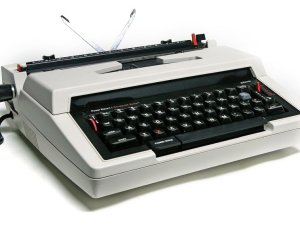 Let me start this blog post by saying I have never been the kind of person to “slow write”. If I’m writing, I’m writing and I do it every chance I have. I want to get it done. That’s my only goal – finish it. Short stories? Finish it so I can edit it. Edit it so I can share it. Share it so people can review it, so I can edit some more, so I can be done with it. So at what point in time am I really enjoying writing?
Let me start this blog post by saying I have never been the kind of person to “slow write”. If I’m writing, I’m writing and I do it every chance I have. I want to get it done. That’s my only goal – finish it. Short stories? Finish it so I can edit it. Edit it so I can share it. Share it so people can review it, so I can edit some more, so I can be done with it. So at what point in time am I really enjoying writing?
I’ve been a participant in National Novel Writing Month since 2006, not counting this past year. For those of you who don’t know, NaNoWriMo, as it’s called, is an event/contest where writers all around the world try to write a novel in a month. Or, in other words, try writing 50,000 words in one month. For three years, I’ve written over 50,000 words every November. The last time I did this, I wrote 112,000 words. That’s a lot of words. But did it really get me anything?
The whole idea behind NaNoWriMo is quantity before quality. Get the words down so you have a rough, first draft, so there’s something to edit. But I’ve always found that, once I finish those drafts, they’re not salvageable. It’s not just the fact that I’ve ignored quality. I rushed through the process. The plot is faulty. There’s nothing in it to save, but the bare ideas of a basic plot and character outlines. And I had that before I started writing the novel. So was it really worth it for me to rush the process of writing, when I got nothing out of it?
I’m not saying that those who participate in NaNoWriMo can’t get something out of it. I think it’s a fun event, every writer should do it – if only for the excitement. Some even end up using those drafts to write their second drafts. But maybe it doesn’t work for me?
I’m starting to consider the idea of slow writing; truly taking my time with the words. I’ve always wanted to finish. I’ve always had a goal. Goals are good, certainly, but should my goals be word count and a date to finish by? Or should those goals consist of writing a mood for a scene, properly developing a character in a scene, explaining the setting better? More writing-specific. Now that I’m entering into the second draft of my novel (still in the planning stage though) and I’ll quickly coming to the halfway point of my summer, I know that if I really want to work on my novel I’m going to have to spread it out over time. I cannot finish it in a month or months even. It might take me a year.
I’ve always treated writing like fast food. Quickly make it, quickly devour it. Be done with it. I’m not hungry anymore, but I didn’t really enjoy it either. What I should really be doing is treating writing like a great dessert, an apple pie with vanilla ice cream. A chocolate brownie, better yet. I should savor each bite, every word, sentence, scene, and character. Rather then merely trying to fill my hunger for writing, I should satisfy myself with the whole process. I’m very much looking forward to trying this new process of writing.
What is your writing process like? Fast or slow? Why do you write that way, and would you ever consider trying it the other way?
Tags: Dessert, enjoy writing, Fast Food, NaNoWriMo, National Novel Writing Month, novel, plot, writing, writing process, Writing slow
 Whew.. So it’s about time we’re posting something here, right? I mean I’m sure many of you have been expecting new blog posts, new podcasts… goodness knows whatelse! And here we are, not delivering any of that to you. It’s terrible, isn’t it?
Whew.. So it’s about time we’re posting something here, right? I mean I’m sure many of you have been expecting new blog posts, new podcasts… goodness knows whatelse! And here we are, not delivering any of that to you. It’s terrible, isn’t it?
